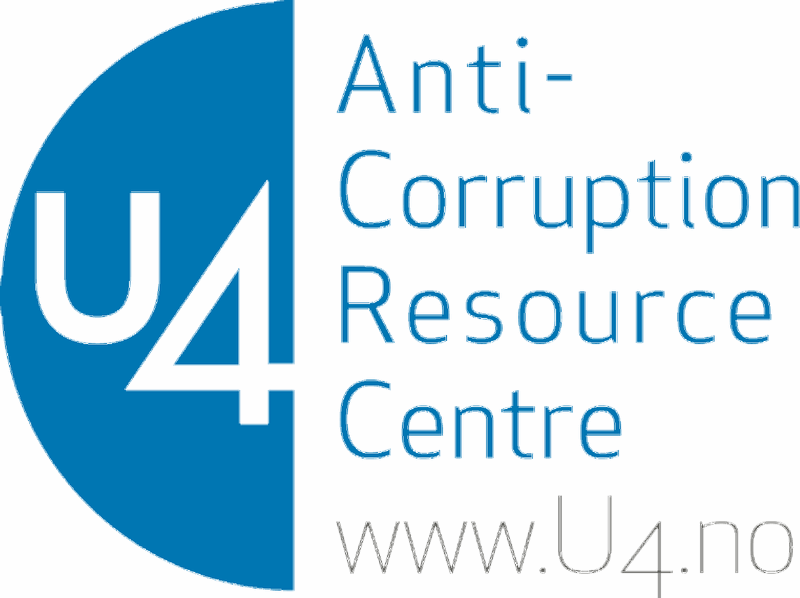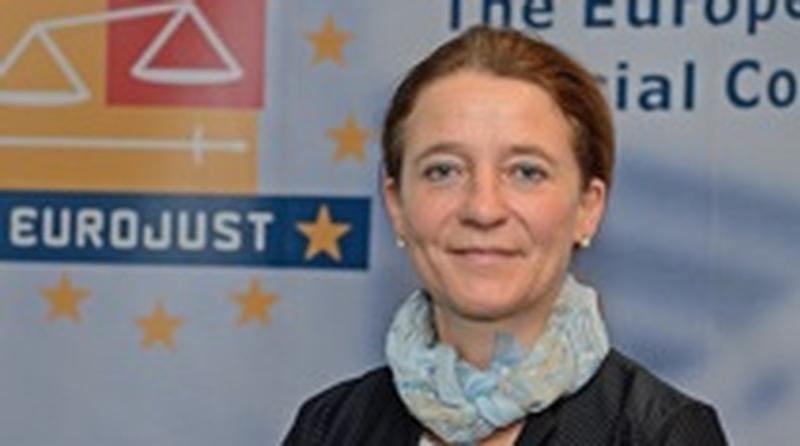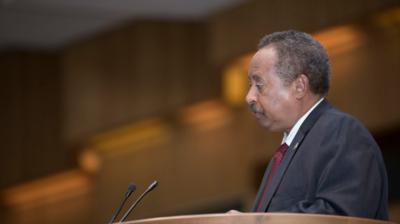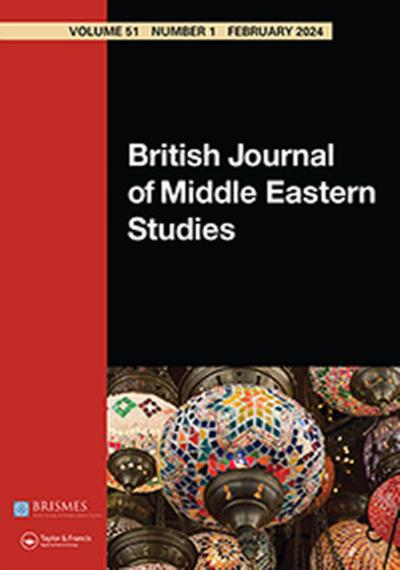Prosecuting corruption across borders: Eurojust – Interview with Maria Schnebli

For fifteen years, Eurojust's operational focus has been set by the European Commission's Agendas on Security and Migration: treating terrorism, illegal immigrant smuggling and cybercrime as priorities. Corruption cases, which often facilitate other types of crime, are also handled by Eurojust. In 2016, it supported the investigation of 74 cases involving corruption, conducted 15 coordination meetings, and supported two joint investigation teams.
U4 Senior Advisor Sofie Arjon Schütte has interviewed Maria Schnebli, Swiss prosecutor seconded to Eurojust as liaison, about her experiences and insights of facilitated cross-country collaboration in large-scale criminal investigations.

Background: How and why Eurojust was established
To step up the fight against serious organised crime, the European Council agreed in 2000 that a unit composed of national prosecutors, magistrates, or police officers of equivalent competence, each detached from each Member State according to their own legal systems, should be set up. A provisional judicial cooperation unit was formed under the name Pro-Eurojust, operating from the Council building in Brussels. This unit was the predecessor of Eurojust. Its purpose was act as a sounding board for prosecutors from all Member States, where Eurojust’s principles would be tried and tested. After the attacks of 9/11 in the USA, the focus on the fight against terrorism moved from the regional/national sphere to its widest international context and served as a catalyst for the formalisation, by Council Decision 2002/187/JHA, of the establishment of Eurojust as the European Union’s Judicial Cooperation Unit (adapted from Eurojust history page).
In April 2003, Eurojust moved to The Hague and a year later faced the challenge of EU enlargement: ten new National Members joined the College in May 2004, and in January 2007, two more were added, bringing the total number to 28. Since this expansion, Eurojust has been negotiating cooperation agreements with third States and other EU agencies, allowing the exchange of judicial information and personal data. Agreements were concluded with Norway, Iceland, Liechtenstein, Former Yugoslav Republic of Macedonia, Moldova, Montenegro, Ukraine, the USA, Croatia and Switzerland, as well as with the European Anti-Fraud Office (OLAF), Europol, the European Commission and other EU and international organisations. Liaison prosecutors from Norway, the USA and Switzerland are now permanently based at Eurojust. In addition to cooperation agreements, Eurojust also maintains a network of contact points worldwide. Currently, it has a network of 42 contact points outside the EU.
How Eurojust works
Maria, how did you come to work for Eurojust and what are your responsibilities?
Eurojust concluded a cooperation agreement with Switzerland as a third State (non-EU Member State), which allows my country to send a Liaison Prosecutor to Eurojust. This agreement has been in force since 2011. Throughout the almost 15 years that I worked as federal prosecutor with the OAG, I myself have been the external operational Swiss contact point to Eurojust since its very beginning in 2002. I was Head of the International Cooperation Department in 2015 when the Swiss government decided to send someone as the first Swiss Liaison Prosecutor to Eurojust. I applied to be the liaison, and was appointed for a term of three years. My contract was just extended by another eighteen months, so I will be at Eurojust until July 2019; I will then return to the OAG and someone else will take my place.
I applied for this position because I had seen from up close how valuable and important the work of Eurojust is. Over the years, I had participated in several coordination meetings at Eurojust on behalf of Swiss prosecutors, in my capacity as the external operational Swiss contact point. I therefore had the privilege to get to know colleagues from the EU Member States working at Eurojust, some of whom are still here, so I go a long way back with them. They always asked me when Switzerland would finally send a Liaison Prosecutor to Eurojust. It was therefore a very special moment when I could finally tell them, in the beginning of 2015, that not only would Switzerland send someone, but it would be me, who they knew already. For me, the decision to apply for this position was the logical next step, given my previous professional experience. I knew that establishing and developing the new position of Swiss Liaison Prosecutor at Eurojust would be a challenge, and that challenge attracted me. I also felt the moment was right for me. So everything fell into place. I can say today, looking back on almost three years in the position, that it has been working out well.
I work at Eurojust for the Swiss prosecutors and police investigators, as well as for the 28 EU Member States and third States (Norway and USA) that have Liaison Prosecutors seconded here. My primary responsibility is to facilitate and coordinate international cooperation in criminal matters between Switzerland and the countries represented at Eurojust. That covers a very wide range of activities, from preparing and accompanying the sending and execution of MLA requests to organising coordinating meetings between prosecutors and police investigators from different countries to plan and define a coordinated investigative strategy.
Who else works at Eurojust?
In total, approximately 350 post-holders work at Eurojust. Some are permanent staff (Office of the Administrative Director, Budget and Planning Office, Corporate Communications Office, Security, Information Management), are part of the Networks and Secretariats that are run by Eurojust (Genocide Network, European Judicial Network and Joint Investigation Teams Secretariat), or the Legal Affairs and Operations (analytical unit of Eurojust, staffed with lawyers from many different jurisdictions). The rest are the 28 current National Desks of the EU Member States and the three third States represented at Eurojust. Some of the National Desks have a staff of up to 5-6 persons (prosecutors and administrative assistants) while others are much smaller, depending on the size of the countries they represent. All the prosecutors working at Eurojust are experienced professionals specialised in different areas of criminal prosecution.
Who do you report to?
I report to the Federal Office of Justice (FOJ) in Berne, the Swiss Central Authority for Mutual Assistance in Criminal Matters. The FOJ is part of the Ministry of Justice. My position as Liaison Prosecutor is integrated in the FOJ because my services as Swiss Liaison Prosecutor are available for all the 26 cantonal prosecutors’ offices, for the Federal Customs Directorate and the Federal Tax Administration as well as the federal prosecutors’ offices – all Swiss authorities with prosecutorial powers. It therefore makes sense to place my function within the Swiss Central Authority for MLA matters.
In what ways is working at Eurojust different from working in a national office?
We do not lead investigations ourselves. Eurojust's function is to support national prosecuting authorities
The main difference is certainly that Eurojust is not a European prosecutor’s office. We do not lead investigations ourselves. Eurojust’s function is to support national prosecuting authorities. We are a demand-driven organisation and assist the prosecutors from our countries in their investigations on request. That can mean that we intervene on very short notice for one requested action in urgent cases, or that we accompany a complex case for a longer time, which might require the organisation of several coordination meetings over a period of several years. The advantage of working at Eurojust is that we have a ‘bird’s-eye view’ and see the whole range of criminal investigations with international ramifications in our countries. We cannot, however, influence or take decisions in these investigations. We can only make suggestions and give recommendations to our national prosecutors who are, and remain, responsible for their investigations. All the prosecutors working at Eurojust at both the National Desks and as Liaison Prosecutors are here only for a limited time, on average about four years; then they go back in the field in their countries. Thus creating an ever expanding network of prosecutors who know how Eurojust works and can assist their home authorities.
What is the role of the Eurojust management? Who decides on priorities when there are too many requests at once?
Eurojust’s day-to-day management is in the hands of the Administrative Director and the Administration (logistics, budget management, etc.). Overall management of Eurojust is the responsibility of the Management Board, consisting of the College, i.e. the representatives of the 28 EU Member States at Eurojust. The College, however, does not interfere with the casework of the National Desks (and the Liaison Prosecutors). Each National Desk manages its casework and sets priorities. The National Desks can apply for additional prosecutorial resources from their home authorities.
Peer-to-peer learning and collaboration
How does collaboration work in practice? Could you give an example?
We work on ongoing criminal investigations, so I cannot comment in detail on a specific case. Eurojust supports prosecutors in complex and urgent cases that require cooperation with other countries. For example, a Swiss prosecutor investigating a case of corruption and money laundering that requires cooperation or knowledge transfer with one or more EU Member State can approach me and ask me to organise a coordination meeting with the prosecutors from other involved countries.
Eurojust supports prosecutors in complex and urgent cases
Such a meeting allows the prosecutors to get to know each other, to discuss and develop a coordinated investigative strategy and to clarify potential legal obstacles. Once direct contact has been established at such a meeting, the prosecutors and police investigators can continue working together directly, but of course the possibility to organise a follow-up coordination meeting at Eurojust also exists.
Face-to-face meetings are great to build trust. But this must be costly if done on a regular basis. Who pays for the travel, accommodation, meals and interpretation?
Eurojust pays for the costs of two representatives of each participating country, if the coordination meeting is organised by Eurojust. The participating countries can also send bigger delegations, but then they must bear the costs for additional participants themselves.
Eurojust’s annual budget comes from the European Union’s budget.
In 2016, Eurojust’s budget was EUR 47.9 million, of which approximately EUR 12.3 million was committed for the construction of and move to Eurojust’s new premises. The Member States pay the salaries and some mission expenses of their National Members, Deputies and Assistants. The administrative staff of the National Desks and the other services mentioned (Networks, Operations, etc.) are paid by the European Commission, as these persons are directly employed by the European Commission.
To what degree is collaboration formalised (in structures); and to what degree does it evolve organically and informally?
Eurojust’s function is to support prosecutors and police investigators and make their lives easier. A contact between a national prosecuting authority and ‘their’ representative at Eurojust can be established informally, by e-mail or telephone. Once the kind of support requested is clarified, the National Desk or third State Liaison Prosecutor at Eurojust contacts their colleagues from the other involved National Desks and opens a case file.
Eurojust's function is to support prosecutors and police investigators and make their lives easier
This is given a reference number and registered in the Case Management System of Eurojust. If a coordination meeting is organised with external participants, the National Desk or third State Liaison Prosecutor who opened the case will chair the meeting. Collaboration (or cooperation) between different judicial authorities participating in a coordination meeting organised by Eurojust must always strictly observe the applicable MLA treaty provisions. Eurojust meetings facilitate and support cooperation, but do not replace the formally applicable MLA rules.
What role does learning and training play at Eurojust?
Eurojust is a know-how platform. In-depth knowledge of legislation and the functioning of the judicial systems of all the EU Member States and third States represented are available here, allowing the exchange and expansion of know-how in specific areas of criminal prosecution among practitioners. For this purpose, Eurojust organises strategic and thematic meetings and discussions on specific subjects each year, for example on joint investigation teams, illegal immigrant smuggling, counter-terrorism, tax crime, cybercrime and other subjects that are defined as priorities for practitioners within the European Union and in associated third States. Experts from all EU Member States and third States represented at Eurojust are invited to these meetings as well as, depending on the subject of the meeting, experts from the private sector.
Lessons from completed cases
How does Eurojust measure its performance?
Eurojust publishes its Annual Report on its website, which addresses its performance and includes detailed statistics. After each coordination meeting and strategic/thematic meeting, external participants are asked to fill out a questionnaire and give a feedback regarding all aspects of the meeting in which they participated.
What do you think Eurojust can contribute to the fight against corruption? Where could it improve?
The fight against corruption has to cross borders and be effective on an international scale, given the very nature of corruption and the offenses linked to it, particularly money laundering. International judicial cooperation today is still ruled by, at times, very formal requirements of treaties and national legislation, but the corruptors and corrupted know no such limitations. Differences in legal systems, insufficient knowledge about the organisation of judicial authorities in countries other than one’s own and sometimes quite simply a lack of trust between authorities of different countries can constitute significant obstacles for prosecutors and police investigators determined to fight corruption. Eurojust can bridge these gaps and help to establish direct and reliable personal contacts between prosecutors and police investigators, which are the key to success in complex corruption cases.
The fight against corruption has to cross borders and be effective on an international scale
In the two and a half years that I have now worked as Swiss Liaison Prosecutor to Eurojust, I have opened cases and have participated in and organised multilateral coordination meetings in several grand-scale corruption cases. Best practice can be exchanged and developed during such meetings, and personal contacts based on trust can be established. An enormous amount of time and money can be saved by meeting all the investigating and prosecuting authorities working on the same complex case around one table, with simultaneous translation. I simply cannot imagine how such results could otherwise be obtained. Of course, that in itself does not guarantee a successful prosecution and a conviction. Each of the prosecutors participating in a coordination meeting organised by Eurojust must still face the courts and the defence lawyers in his case, but at least will have obtained a contact list of all the other participants, and know that they are not alone and they have the possibility to meet, to define and to develop a coordinated investigative strategy with colleagues facing similar challenges. There is always room and potential for improvement. One option is certainly to strengthen and intensify cooperation and exchange information with other EU bodies and agencies, such as Europol, OLAF and the future European Public Prosecutor (EPPO). Eurojust is already working on strengthening and intensifying cooperation.
Given that Eurojust is a very important contact network, re-establishing closer cooperation with Eurojust’s external contact points in several countries outside of the EU would be a good idea. In the past, an annual meeting of all these contact points was held at Eurojust. Due to budgetary constraints, these meetings were discontinued. Since personal contacts are always the best way to go, it would be good if all the National Desks and Liaison Prosecutors working at Eurojust could meet the external contact points from such distant countries, such as Georgia, Israel, Mongolia, Taiwan among others, once a year.
Re-establishing closer cooperation with Eurojust's external contact points in countries outside the EU is a good idea
Another way forward is to convince other third States to conclude cooperation agreements with Eurojust and to second Liaison Prosecutors to Eurojust, giving these countries the possibility to actively use Eurojust and make its services available to their home authorities. Switzerland has done so, and I can only recommend it. It is clearly a so-called ‘win-win situation’, which is, after all, a relatively rare occurrence in the fight against crime.
The European Union Agency for Law Enforcement Cooperation (Europol) is the law enforcement agency of the European Union that handles criminal intelligence and combating serious international organised crime by means of cooperation between the relevant law enforcement authorities of the Member States, including those tasked with customs, immigration services, border and financial police. Europol was established in 2009 and is based in The Hague, Netherlands.
The European Anti-Fraud Office (OLAF, from its French name, Office de Lutte Anti-Fraude) investigates fraud against the EU budget, corruption and serious misconduct within the European institutions, and develops anti-fraud policy for the European Commission. It started operations in 2000 and is based in Brussels.
The future European Public Prosecutor (EPPO) will investigate and prosecute EU fraud and other crimes affecting the Union's financial interests above a certain threshold. It will be based in Luxembourg.
Collaboration beyond the EU
Can prosecutors from non-EU member countries collaborate with Eurojust and how?
Yes, they can, as Switzerland did before I was sent to Eurojust as Liaison Prosecutor. They can ask their colleagues from an EU Member State, with whom they work together on an internationally connected investigation, to contact their National Desk at Eurojust with the request to organise a coordination meeting and to also invite the prosecutors from third States. While prosecutors from third States cannot initiate a meeting themselves, they can nevertheless give the impulse for such a meeting.
What is the role of non-EU contact points?
They facilitate access to their home authorities for the National Desks and third State Liaison prosecutors at Eurojust. They follow up MLA requests that have been sent to their countries or establish direct contact between the home authorities of the Eurojust colleagues who contact them and their own home authorities. They can also help to clarify questions about legal issues related to their jurisdictions that are presented to them by Eurojust.
Which pieces of legislation and other instruments are most important to allow for cross-country collaboration?
That depends on whether you ask this question to an EU Member State or a third State such as Switzerland. The EU Member States cooperate on the basis of the EU 2000 MLA treaty. The Swiss, who had not integrally ratified this treaty when Switzerland adhered to the Schengen area, cooperate with most, but not all, EU member states on the basis of the 2nd additional protocol to the 1959 MLA convention of the Council of Europe which has not been ratified by all EU member States. Of importance are also the UN Conventions on Transnational Crime and Corruption. What often is neglected is the need for countries which ratify such treaties and protocols to also adapt their internal legislation, so that important tools provided by these pieces of legislation can also be used. By this I mean primarily the more recent instruments which allow for a more proactive cooperation in real-time, such as undercover operations, controlled deliveries and most importantly Joint Investigation Teams.
What would you recommend to other regional associations such as ASEAN and ECOWAS? Should they consider the establishment of a similar regional institution?
A regional institution can become a very significant platform to strengthen and support investigating and prosecuting authorities
The establishment of an institution such as Eurojust has been a long and time-consuming process. It has required a continuous commitment and notably also a financial investment by all countries represented at Eurojust, as well as by the Netherlands as Eurojust’s Host State. During its existence, Eurojust has undergone several changes and modifications, and this process is ongoing. As I hope to have explained above, such a regional institution can become a very significant platform to strengthen and support investigating and prosecuting authorities. It is a long-term project that I would recommend approaching step-by-step. One must also take into consideration that ASEAN and ECOWAS must confront challenges quite different from the challenges that the EU Member States faced when they decided to set up Eurojust. There is no ‘one model fits all’ option here. A study visit to Eurojust to see how Eurojust works in practice, and which elements could be taken over by ASEAN and ECOWAS, could certainly be a suggested first step. The negotiation of cooperation agreements with Eurojust could be a next step, and things could then be taken from there.
The U4 Anti-Corruption Resource Centre at CMI works to identify and communicate informed approaches to partners for reducing the harmful impact of corruption on sustainable and inclusive development. Sign up for our newsletter. For more about Justice and Corruption visit the U4 Theme Page.
Comments and Feedback
We welcome your feedback. Please don't hesitate to send your thoughts to U4 Senior Advisor Sofie Arjon Schütte.
Or follow us on Facebook, Twitter or LinkedIn.
Disclaimer
All views expressed in this U4 Practitioner Experience Note are those of the interviewee, and do not necessarily reflect the opinions of the U4 partner agencies, or CMI/U4.



